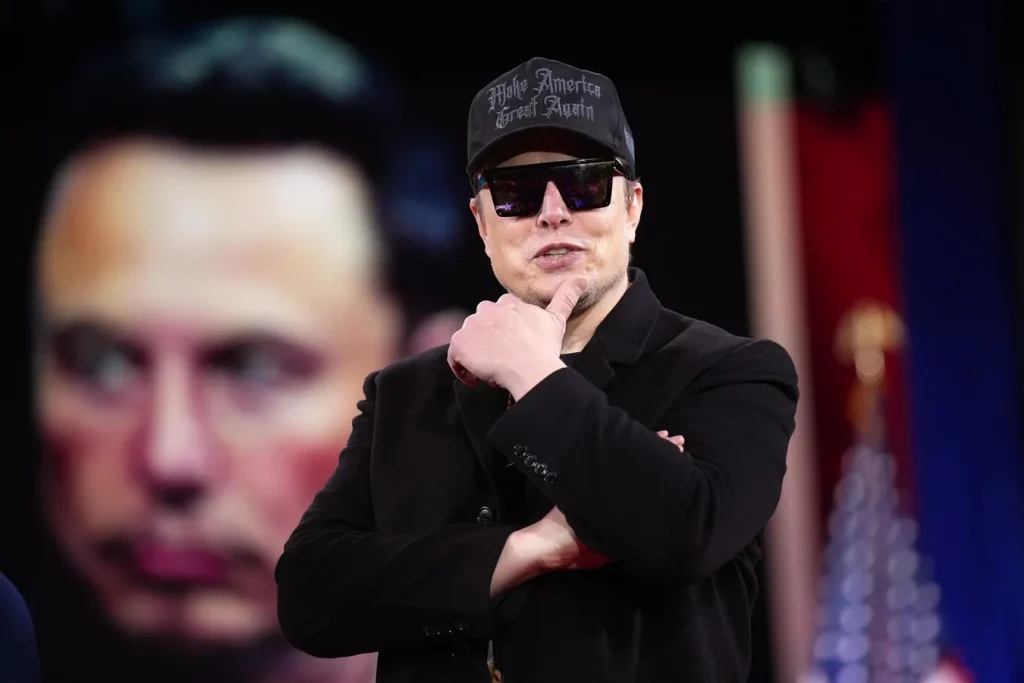Elon Musk: Halfway to Becoming the World’s First Trillionaire
Elon Musk has achieved an unprecedented financial milestone, becoming the first person in history to be worth half a trillion dollars. As of Wednesday afternoon, the Tesla CEO’s fortune reached the $500 billion mark according to Forbes’ Real-Time Billionaires tracker, putting him $150 billion ahead of his closest competitor, Larry Ellison. This achievement represents the halfway point to becoming the world’s first trillionaire, a feat that once seemed impossible but now appears within reach for the tech visionary. Musk’s meteoric wealth accumulation is particularly remarkable considering that just four years ago, in March 2020, his net worth stood at a comparatively modest $24.6 billion. Since then, he has systematically shattered wealth records, becoming the fifth person ever worth $100 billion in August 2020, claiming the title of world’s richest person in January 2021 with nearly $190 billion, and continuing to milestone after milestone: $200 billion in September 2021, $300 billion in November 2021, and $400 billion just last December.
Tesla remains the cornerstone of Musk’s wealth, with the electric vehicle maker’s stock climbing nearly 4% on Wednesday alone, adding an estimated $9.3 billion to his fortune. Investors have responded positively to Musk’s announcement that he would step back from his role heading President Trump’s Department of Government Efficiency (DOGE) to refocus his attention on Tesla. This renewed commitment has helped Tesla’s stock price nearly double since April, bringing the company’s market capitalization within 10% of its all-time high reached in December. Musk’s 12% stake in Tesla is now valued at approximately $191 billion, forming the largest component of his wealth. This figure doesn’t even include the performance-based stock options from his 2018 compensation package that would be worth $133 billion today if they hadn’t been voided by a Delaware judge in January 2024—a ruling Musk is currently appealing to the Delaware Supreme Court.
The ambitious entrepreneur’s wealth extends far beyond Tesla. His rocket company SpaceX, founded in 2002 with the long-term vision of enabling human colonization of Mars, has seen its valuation soar to $400 billion based on a private tender offer in August—up from $350 billion last December. Musk’s estimated 42% stake in SpaceX contributes approximately $168 billion to his net worth. Additionally, his newer ventures continue to add substantial value to his portfolio. In March, Musk merged his artificial intelligence company xAI with his social media platform X (formerly Twitter) to form xAI Holdings, a company valued at $113 billion. His estimated 53% stake in this enterprise adds another $60 billion to his fortune, demonstrating how Musk’s diverse business interests have become powerful wealth generators across multiple cutting-edge industries.
Looking toward the future, Tesla’s board proposed a new, record-breaking compensation package in September that could potentially award Musk additional stock worth up to $1 trillion if the company achieves what they’ve termed “Mars-shot” performance milestones. These ambitious targets include growing Tesla’s market capitalization more than eightfold over the next decade. However, Musk has emphasized that this potential compensation isn’t merely about personal enrichment. “It’s not about ‘compensation’, but about me having enough influence over Tesla to ensure safety if we build millions of robots,” he explained in a September post on X. “If I can just get kicked out in the future by activist shareholder advisory firms who don’t even own Tesla shares themselves, I’m not comfortable with that future.” This statement reveals Musk’s perspective that maintaining control is essential for guiding Tesla’s long-term vision, particularly as the company ventures into increasingly advanced technologies like humanoid robots and artificial intelligence.
If Musk maintains his current pace of wealth accumulation, he could potentially become the world’s first trillionaire before March 2033, when the first of two vesting dates for his proposed $1 trillion Tesla pay package would arrive. This trajectory represents an extraordinary financial ascension that has redefined wealth accumulation in the modern era. What makes Musk’s story particularly fascinating is that his fortune hasn’t been built through traditional industries or inherited wealth, but through companies focused on transformative technologies: electric vehicles revolutionizing transportation, reusable rockets making space more accessible, neural interfaces connecting humans with computers, and artificial intelligence systems pushing the boundaries of machine learning. Each of these ventures carries not just commercial potential but aspires to fundamentally change humanity’s future.
Despite the staggering numbers, Musk’s fortune remains largely theoretical—tied to the market valuations of his companies rather than liquid assets. This wealth is subject to market volatility and could fluctuate significantly based on investor sentiment, regulatory decisions, or competitive developments. Nevertheless, the $500 billion milestone represents a remarkable moment in economic history, showcasing how a single individual’s vision and entrepreneurship can generate unprecedented financial value in the modern technology-driven economy. As Musk continues his pursuit of ambitious goals like establishing a self-sustaining city on Mars, developing safe artificial general intelligence, and transitioning the world to sustainable energy, his wealth accumulation serves not just as a personal achievement but as a reflection of how profoundly his companies aim to reshape humanity’s future. Whether he ultimately becomes the world’s first trillionaire or not, Musk’s financial journey has already rewritten the boundaries of what’s possible in terms of personal wealth creation in the 21st century.


